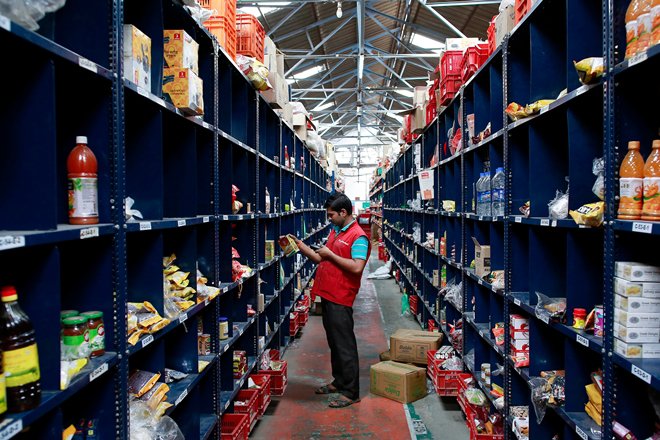GST to be a reality soon, to be implemented from July 1, 2017; all states on board, says Shaktikanta Das
The Financial Express
By FE Online
February 28, 2017 4:23 PM
Goods and Services Tax (GST) will be implemented from July 1, 2017, Economic Affairs Secretary Shaktikanta Das said on Tuesday.

The GST is expected to bring about reduced tax exemption, which could have a bearing on prices of goods and capital requirement for managing cross-border supply chains. (Reuters)
Goods and Services Tax (GST) will be implemented from July 1, 2017, Economic Affairs Secretary Shaktikanta Das said on Tuesday. Speaking to reporters, Das said that GST will be a reality soon as all states were on board and this, in turn, will unleash the growth potential of the economy. The GST, which will replace a myriad of consumption taxes, could be a “game-changer” over the medium term as it would reduce tax cascading and boost India’s competitiveness, investment and job creation.
“GST is going to unleash a huge quantum of growth impulses. The effect will be felt and once India becomes one market, there will be positive impact on growth impulses,” Das said.
Speaking to PTI in London, Finance Minister Arun Jaitley, said, “The first requirement is constitutional amendment, the law has been passed unanimously and by September 15, 2017 the curtain will be down. We have resolved most of the critical issues. Legislations have been drafted. Two weeks ago, we approved the first draft. By March first week, the second draft will come up. Parliament will be resuming from March 9.”
The Finance Minister said, “Despite teething problems, hopefully GST will come up for implementation by July 1. The entire process has to be completed by September 15. At the moment, it is the biggest tax reform since Independence. Once implemented, it will be far more efficient tax system. The quantum of taxation will go up. GST will make generation of cash more difficult.”
Last week, Chief Economic Advisor Arvind Subramanian revealed that internal trade has drastically improved; this being a boon to the country’s progress in the wake of GST.
The GST is expected to bring about reduced tax exemption, which could have a bearing on prices of goods and capital requirement for managing cross-border supply chains. It will also mean reduced duty benefit claimed on imports and reduced export incentives and drawback on exports, experts said.
Global thinktank OECD said, “The GST reform is designed to be initially revenue neutral. It should be complemented by a reform of income and property taxes.”